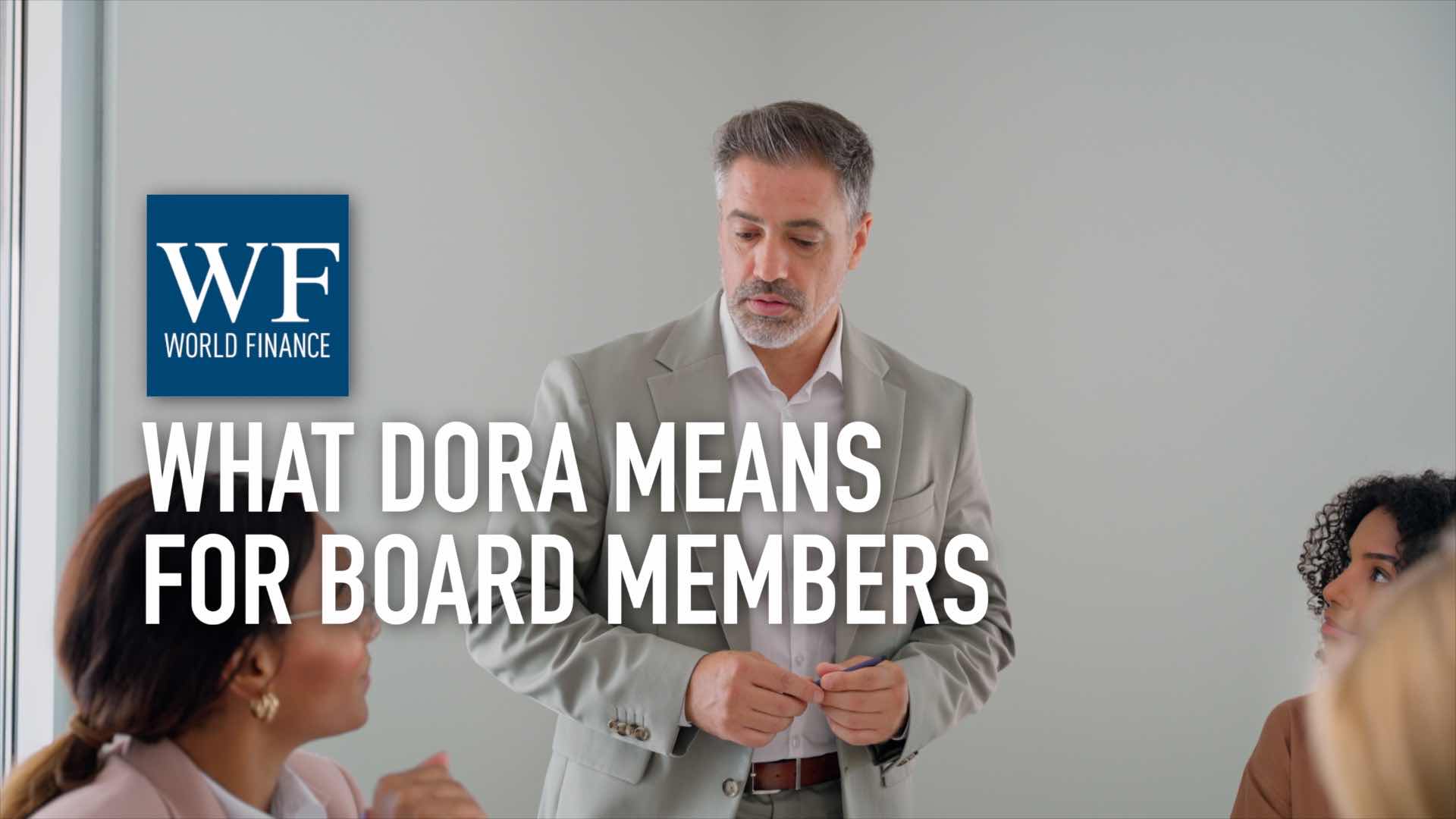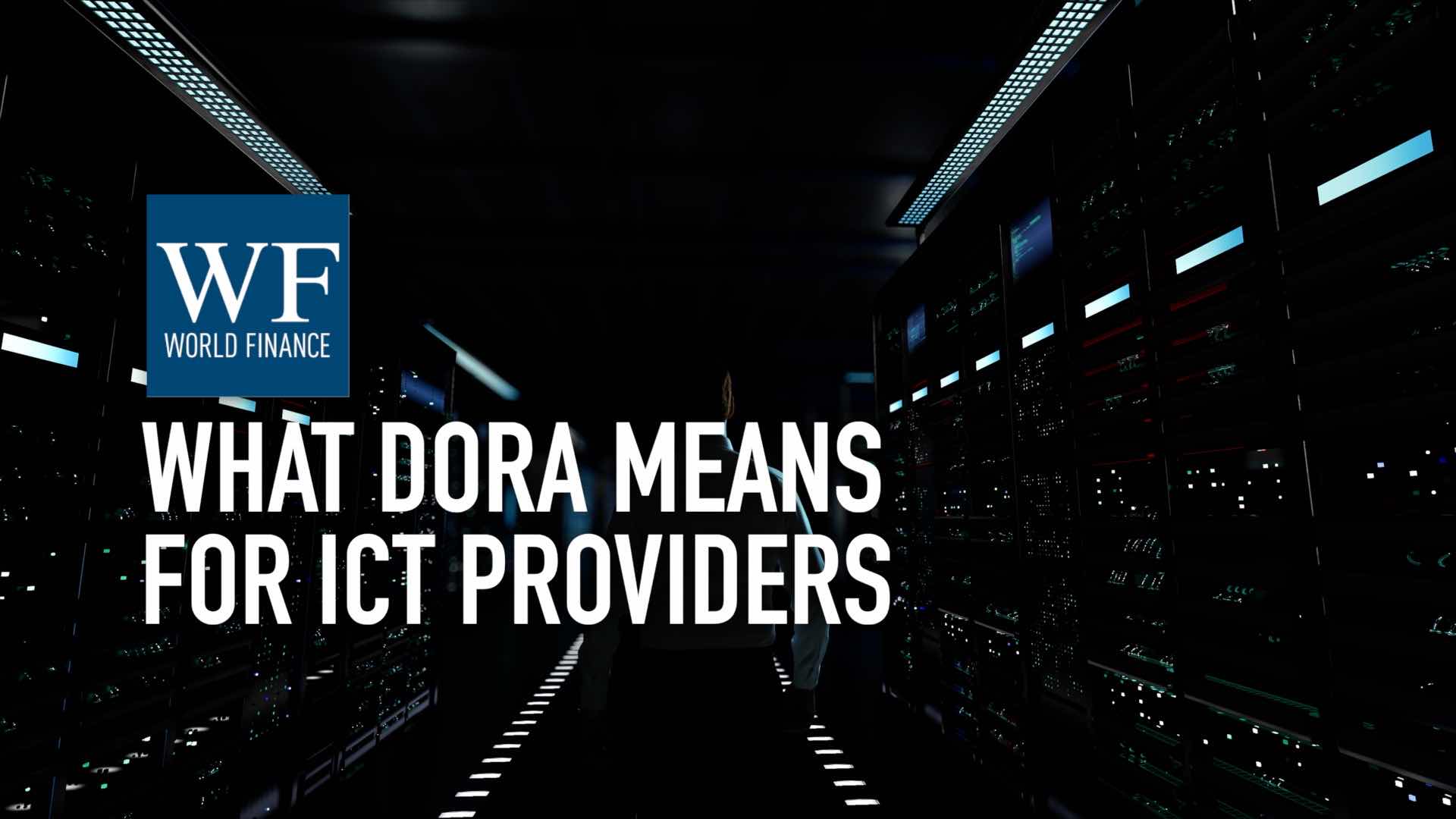Abel Lin and Joseph Wang on insurance in Taiwan | Cathay Life Insurance | Video
World Finance interviews Abel Lin and Joseph Wang, Executive Vice Presidents, of Cathay Life, on the life insurance business in Taiwan
Related:
Transcript
Cathay Life has the largest market share of any life insurer in Taiwan. It marked its 50th anniversary in 2012, but has never stopped looking forward. It’s shaping a new organisational culture, in order to maintain long-term, steady growth. Abel Lin and Joseph Wang, Executive Vice Presidents at Cathay Life, discuss the challenges and opportunities facing the company, in the context of the long-term low interest rate environment in Taiwan.
Mr Lin, if we can start with you: let’s look ahead to Cathay Life’s future, what are the challenges and opportunities facing the company?
Abel Lin: For our company culture, we always think risk first, and then reward. I think the first challenge is, how can we resolve the so-called, negative spread issue? As you know, our company has already worked for 50 years in Taiwan, and in the older time when the interest rate is high, we provide a high guarantee on life insurance products. So, actually right now our funding cost is still high as 4.1 percent, and our return general in average is around 3.8 percent to 4.1 percent, so, we still have the negative spread issue.
But, we think within five years we can totally resolve the issue by, we will continue to reduce our cash position to overseas investment, especially the overseas bond market to enhance our yeald. And secondly, we will provide more traditional life insurance company, especially regular paid products, to enhance our mortality and loading gain.And third one, we will continue to increase our risk management ability.
The second challenge is that, how can we satisfy our customer needs to avoid price competition? We want to avoid the price war, we don’t want to join the price competition, so, how can we do that? Is that we need to continue to satisfy our customer needs, so this is a big trend, so we use a large IT system to provide more convenient service to our customers.
And third challenge is, how can we expand our business overseas? As you know, in Taiwan right now, life insurance penetration is over 200 percent. It means that we are a mature market in the world. So, the only way we want to maintain the substantial growth is overseas. So right now we have already a joint venture, 50:50 in China, and fully subsidiary in Vietnam.
Then I want to highlight two opportunities. The first one is that Taiwan right now is facing the so-called ageing society. So, in this ageing society actually provide a great opportunity for pension plan, for health insurance, and also for long-term care products. So, we are facing a big problem in this ageing society.
But, for life insurance company, actually, it’s a good opportunity for we can expend our product to our customer if we can make a right product to our customer. So it’s a potential opportunity.
The second one as I mentioned is a big challenge, is that how can we expend our business overseas? Except China and Vietnam, we think globally in the next 10 years, the capital flow I think will flow to the Asian countries, especially Asian countries. And it has a lot of market potential, because right now the penetration actually is below one percent. So, we can provide our management excellent expertise to these countries, then we can gain more growth potential, growth opportunities, in Asian countries.
World Finance: If I can turn to you Mr Wang, this is an era of low interest rates, so, what’s the impact on Taiwan’s life insurance companies?
Joseph Wang: I think Taiwan’s insurance companies have been suffering from the low interest rate environment for quite a long time. Especially, even before the financial crisis in 2008, Taiwan’s interest rates were extremely low for a long time, so, as Abel said earlier, we have been in a negative interest rate spread situation. So, I think this is because we have very high saving rate, and also legup by investment opportunities. So, how do we respond to this kind of situation?
First, we diversify our investment portfolio to overseas investment. Because we can get higher yields from overseas investment. And also I think, in terms of market size and in terms of liquidity, overseas market can also satisfy our need. Because in local market, for Cathay Life, our asset size has exceeded $110bn. It’s a very big size. So, we have to diversify our investment overseas.
And secondly, we also set up an alternative investment team in 2007, and all so that we can invest in PE or hedge funds, and that can also help us enhance our yield.
And thirdly, we also added a lot of our equity position in high income, high divided equities, and especially we like the companies, they can generate free cash flow, and also pay out to shareholders.
World Finance: So finally, how do you see the relationship between interest rates and product offerings develop in the future?
Abel Lin: I think, because, as Joseph said, we are suffering a quite long-term low interest environment, so, during this low interest environment in Taiwan, actually, our product half is shift to like the interest credit annuity. And the other is growth momentum is quite strong is the unit-linked product in Taiwan. The third one I think, I want to highlight is that, as I mentioned, a big opportunity is we face in the ageing society. So, for health insurance products, actually, is to satisfy our customer need.
Also for health insurance product, actually the interest rate component is not so sensitive to their price. We will more focused on the health insurance product in the future for the rising interest rate environment.
World Finance: Abel Lin, Joseph Wang, thank you very much indeed.
Abel Lin, Joseph Wang: Thank you.

 What the Digital Operational Resilience Act means for board members and CEOs
What the Digital Operational Resilience Act means for board members and CEOs What the Digital Operational Resilience Act means for third party ICT providers
What the Digital Operational Resilience Act means for third party ICT providers
